Essential Guide to Online Form Applications Across Industries
Online forms have become indispensable tools across numerous sectors, offering various applications that cater to different needs and industries. Their versatility allows for many uses, from simplifying order processes and managing registrations to streamlining appointments and collecting valuable feedback through surveys.
This guide dives into the tons of ways you can use online forms, highlighting how flexible they are and how they meet the unique needs of different industries, making things run smoother and more accurately.
Benefits of using online form applications
Online form applications offer many benefits that can enhance your workflow and productivity. Let’s explore some of the key advantages these tools provide.
- Time-saving Automation: Automate reminders and tailor forms dynamically with conditional logic, cutting down manual tasks and errors.
- Enhanced Data Accuracy: Built-in validations and prefill options ensure consistent and high-quality data collection.
- Boosted Efficiency: Features like autosave and auto-complete optimize the form-filling process, making it faster and more user-friendly.
- Integrated and Collaborative Workflows: Easy data transfer and shared form management promote teamwork and efficiency.
- Stringent Data Security: Implementing rigorous security protocols and compliance measures safeguards sensitive information.
Diverse Use Cases for Online Forms
Order Forms: Online forms make it easy to place orders for goods, services, or subscriptions, thanks to customizable templates that ensure everything runs smoothly. Features such as built-in tax calculations, discounts, and shipping fees enhance user experience.
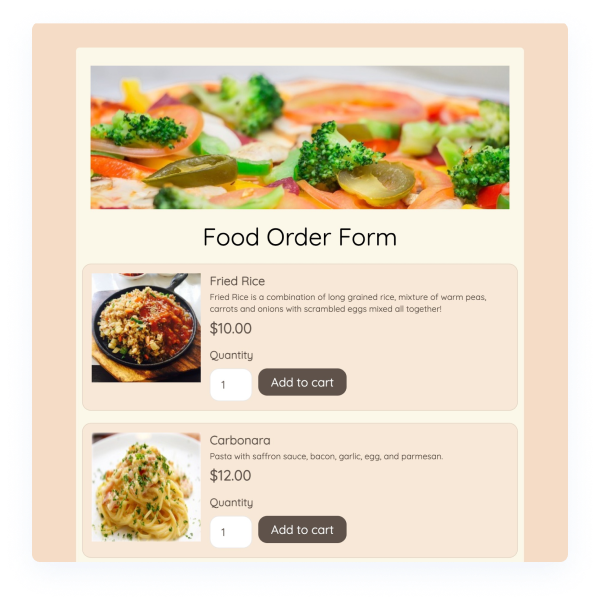
Event Registrations: For educational seminars, sports events, or business conferences, online registration forms make event planning more manageable by integrating with CRM and other tools, enabling easy data portability.
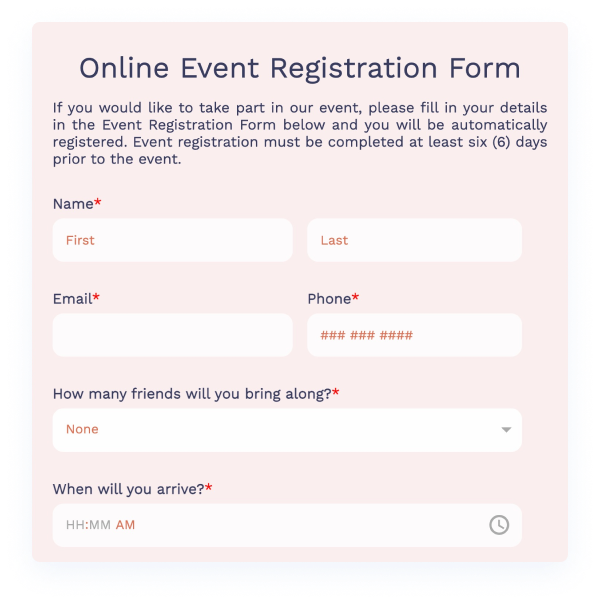
Appointment Scheduling: Various service providers, including healthcare and beauty sectors, utilize online forms for appointment bookings, offering convenience through easy sharing options and integration with scheduling tools.
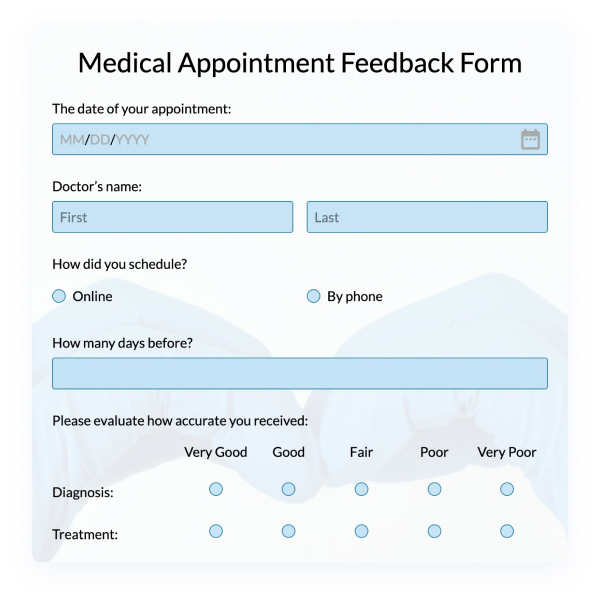
Feedback and Surveys: Educational bodies, healthcare providers, and corporate HR departments rely on surveys to gather essential feedback, leveraging conditional logic for tailored questionnaires.
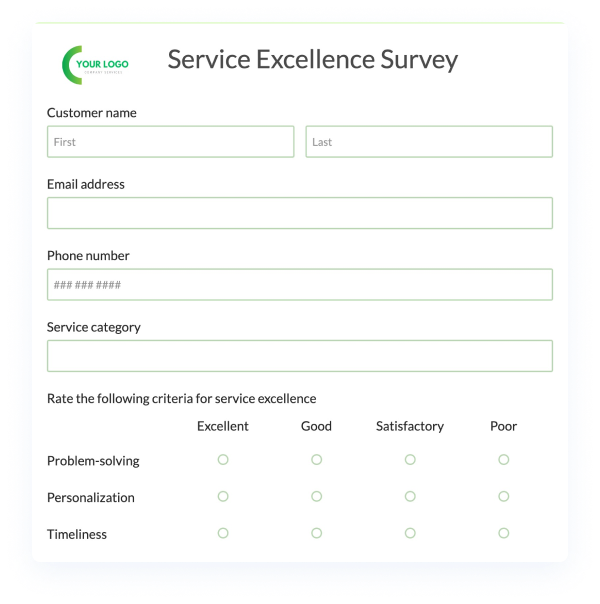
Payment Collections: Secure payment forms connected to multiple gateways facilitate transactions for donations, subscriptions, and services, supporting various payment methods to suit customer preferences.
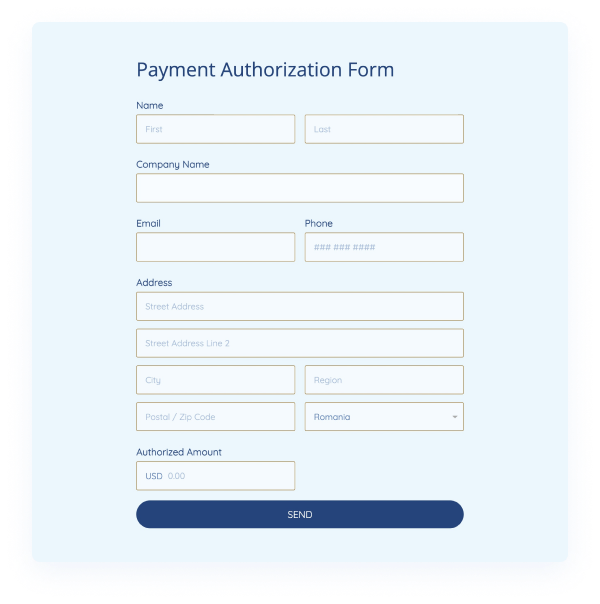
Job Applications: Online job application forms streamline recruitment processes, allow for efficient candidate screening, and automate communication, enhancing the hiring workflow.
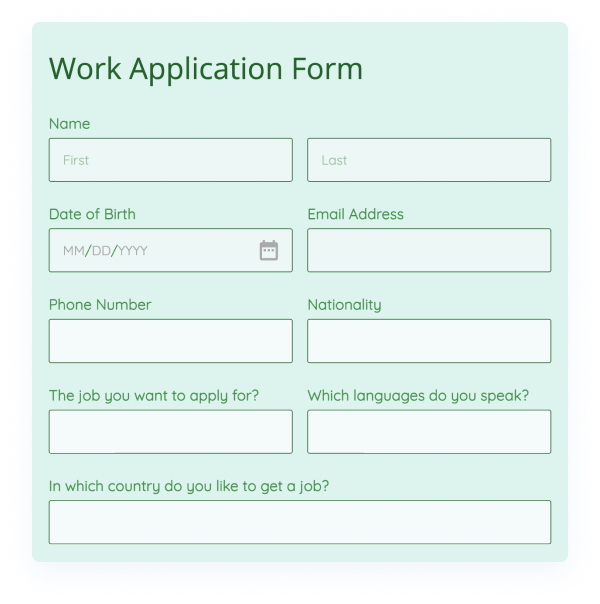
Contract Management: With digital signature capabilities, contract management becomes smoother, supporting offline data collection and integration with project management tools for comprehensive contract handling.
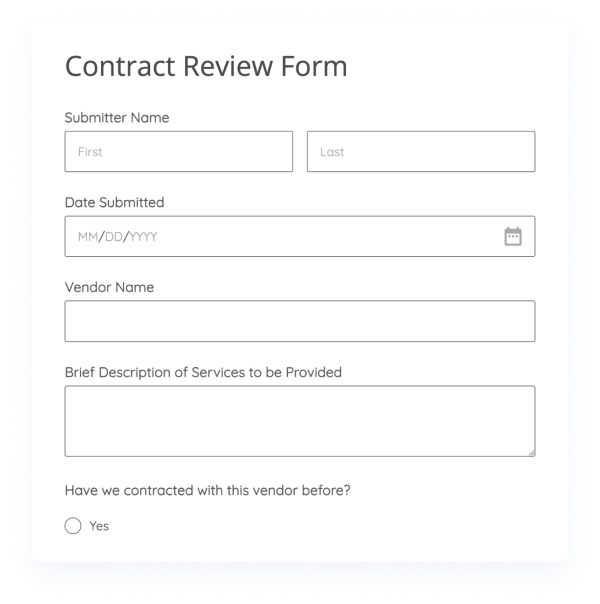
Choosing the right online form application for your industry
Now that we’ve explored the benefits of online form applications, it’s essential to choose the right tool for your specific industry. While numerous options are available, not all online form applications are equal. Here are some factors to consider when selecting an online form application for your industry.
1. Industry-specific features
Different industries have unique requirements for data collection and management. For example, healthcare organizations may need HIPAA-compliant forms, while e-commerce businesses may require payment integration. When choosing an online form application, ensure that it offers industry-specific features and customization options that align with your business needs. Consider whether the application supports file uploads, conditional logic, data validation, and integration with other tools or systems essential for your industry.
2. Customization and branding options
Branding plays a crucial role in establishing a professional image for your business. Look for online form applications that allow you to customize the look and feel of your forms, including colors, fonts, and logos. This customization ensures that your forms are consistent with your brand identity and provide a seamless experience for your customers. Additionally, consider whether the application offers advanced customization options like CSS styling or the ability to create multi-page forms to cater to your specific requirements.
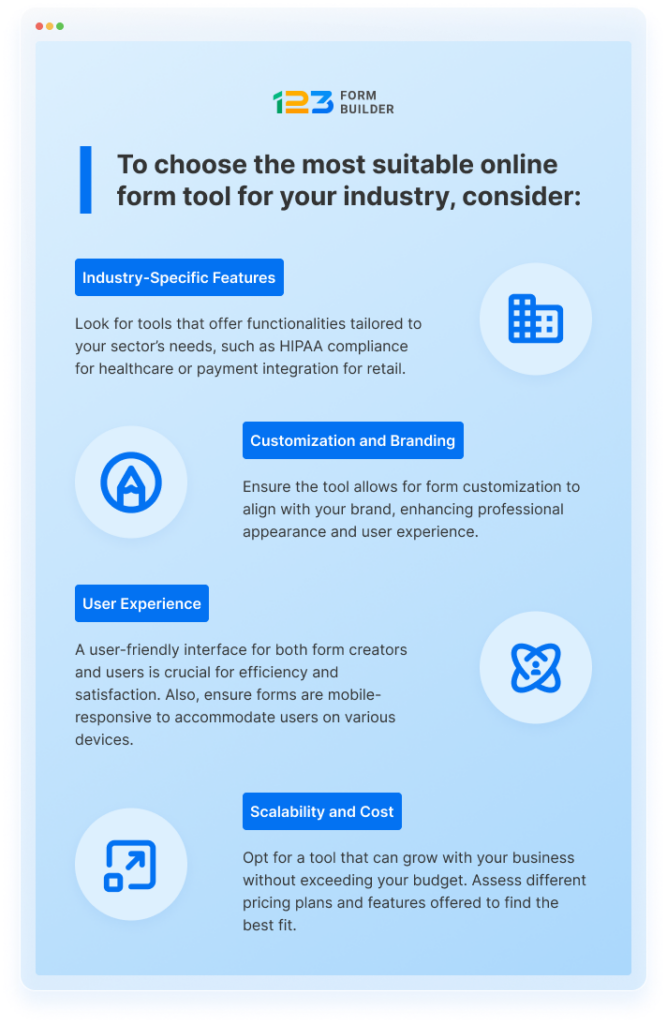
3. Scalability and pricing
As your business grows, so will your data collection needs. Choosing an online form application that can scale with your business without breaking the bank is essential. Evaluate the pricing plans of different applications to ensure they align with your budget and offer the necessary features for your industry. Some applications offer tiered pricing based on the number of forms, submissions, or users, while others may offer unlimited plans. Consider your current and future requirements to make an informed decision.
4. User-friendliness and ease of use
Online form applications should be user-friendly and intuitive for form creators and respondents. Look for applications with a drag-and-drop interface, pre-built form templates, and easy-to-understand settings. A user-friendly interface ensures that anyone, regardless of technical expertise, can create and manage forms efficiently. Additionally, consider whether the application offers mobile-responsive forms to cater to users accessing forms from different devices.
Online Form Automation and Integration Options
One of the key advantages of online form applications is their ability to automate repetitive tasks and integrate with other tools and platforms. By automating your form workflows, you can save time, reduce errors, and improve efficiency. Here are some ways you can automate your form processes:
- Autoresponders: Set up automated email responses to acknowledge form submissions or provide additional information to users, generating instant feedback and improving customer satisfaction.
- Email notifications: Configure your forms to route data to the appropriate team members or departments based on the form responses. This ensures that the right people receive the relevant information without any delays.
- Conditional logic and branching: Use conditional logic to create dynamic forms that adapt based on the user’s responses. By showing or hiding form fields dynamically, you can create a personalized experience and gather only the necessary information.
- CRM integration: Integrate your online form application with your CRM system to automatically update customer records with the data collected through the forms.
- Payment processing: If your business requires collecting payments through your forms, integrate your online form application with a secure payment gateway. This will allow you to collect payments seamlessly and automate the payment confirmation process.
By leveraging the automation and integration options provided by online form applications, you can eliminate manual tasks, reduce human error, and improve overall productivity.
Online Form Application Security and Data Protection
As with any online tool that collects sensitive information, security, and data protection are of paramount importance when using online form applications. It’s crucial to choose an application that prioritizes data security and takes measures to protect your valuable information.
When evaluating online form builders, look for features such as SSL encryption, data encryption at rest, and secure data storage facilities. These features ensure that the data collected through your forms is transmitted and stored securely.
Look for certifications such as ISO 27001 or SOC 2 compliance, which indicate that the provider has implemented robust security measures and follows industry best practices.
It’s also important to review the privacy policy and terms of service of the online form application. Ensure the provider does not share or sell your data to third parties without your consent.

By choosing a secure online form application and following best practices, such as regularly updating your software and using strong passwords, you can ensure the safety and protection of your data.
How different industries use online form applications
Online form applications have proven to be valuable tools across a wide range of industries. Let’s take a look at some case studies to understand how different industries use online form applications to streamline their workflows:
- Healthcare
In the healthcare industry, online form applications are crucial in collecting patient data, scheduling appointments, and gathering feedback. Healthcare providers can create HIPAA-compliant forms that securely collect sensitive patient information. Additionally, online forms enable patients to schedule appointments, provide feedback on their experience, and request prescriptions, reducing administrative overhead and improving patient satisfaction.
- Retail
In the retail industry, online form applications serve various purposes, including customer feedback, order tracking, and inventory management. Retailers can create customer feedback forms to gather insights and improve the overall shopping experience. These forms can be integrated with CRM systems to track customer interactions and identify areas for improvement. Additionally, online forms can be used for order tracking, allowing customers to quickly check their orders’ status.
- Education
The education sector extensively utilizes online forms for student registration, course evaluations, and managing events. These institutions streamline enrollment and gather vital information through customized registration forms, while also facilitating student sign-ups for events, workshops, and activities.
- Nonprofit
The nonprofit sector leverages online form applications to manage donations, coordinate volunteer sign-ups, and organize community events. These organizations can craft tailored registration forms that simplify the donation process and gather essential supporter details.
- Finance Industry
The finance industry uses online form applications for loan applications, client onboarding, and expense tracking. Financial institutions can create secure online loan application forms that streamline approval. Additionally, online forms can be used for client onboarding, allowing new clients to submit necessary documents and information.
Tips and Best Practices for Online Form Applications
To maximize the benefits of online form tools, consider the following practices:
- Simplicity and Clarity: Design straightforward forms that focus on essential information to avoid overwhelming users.
- Mobile Responsiveness: Given the prevalence of mobile device usage, ensure your forms are easily navigable on smartphones and tablets.
- Continuous Testing and Optimization: Regularly test your forms across different platforms and use feedback for improvements to ensure they meet user needs effectively.
- Leverage Integrations: Integrate your form tool with other systems you use for a streamlined workflow, reducing manual data transfers and enhancing productivity.
The strategic use of online forms streamlines tasks such as order processing, registrations, and feedback collection and enhances the overall user experience. As industries continue to embrace and innovate with online form technology, it’s clear these tools are indispensable in facilitating organizational success and adaptability in a digital-first environment.
Load more...